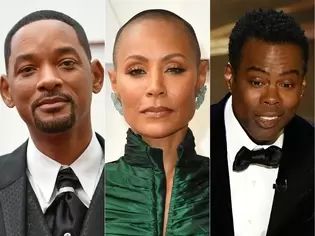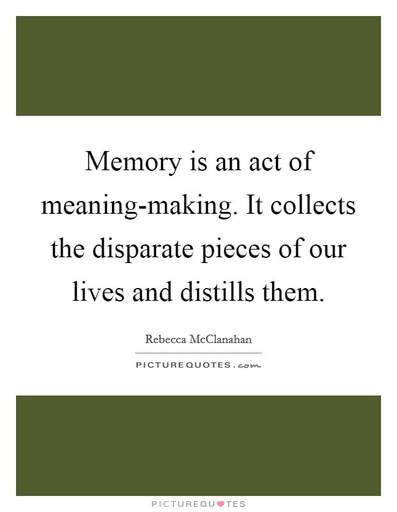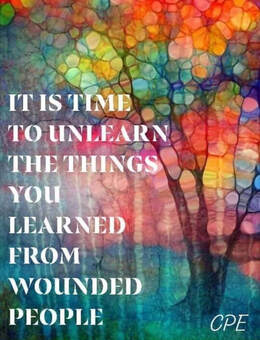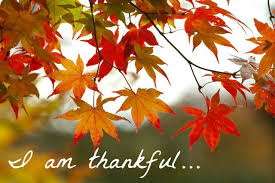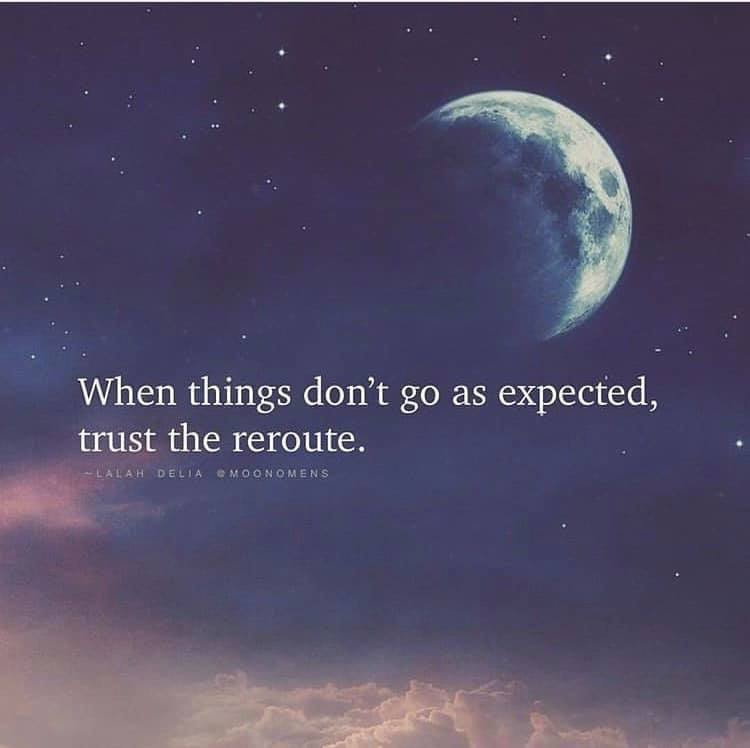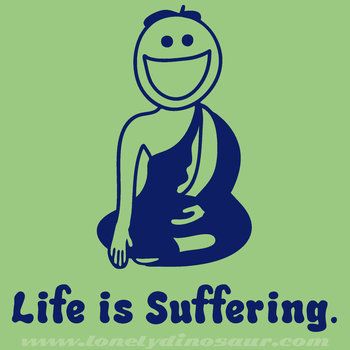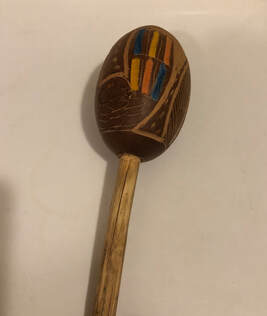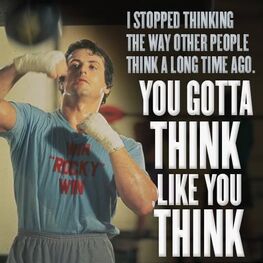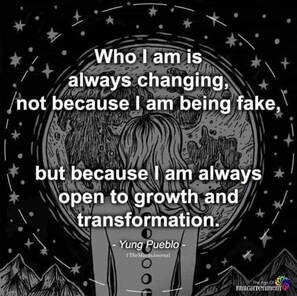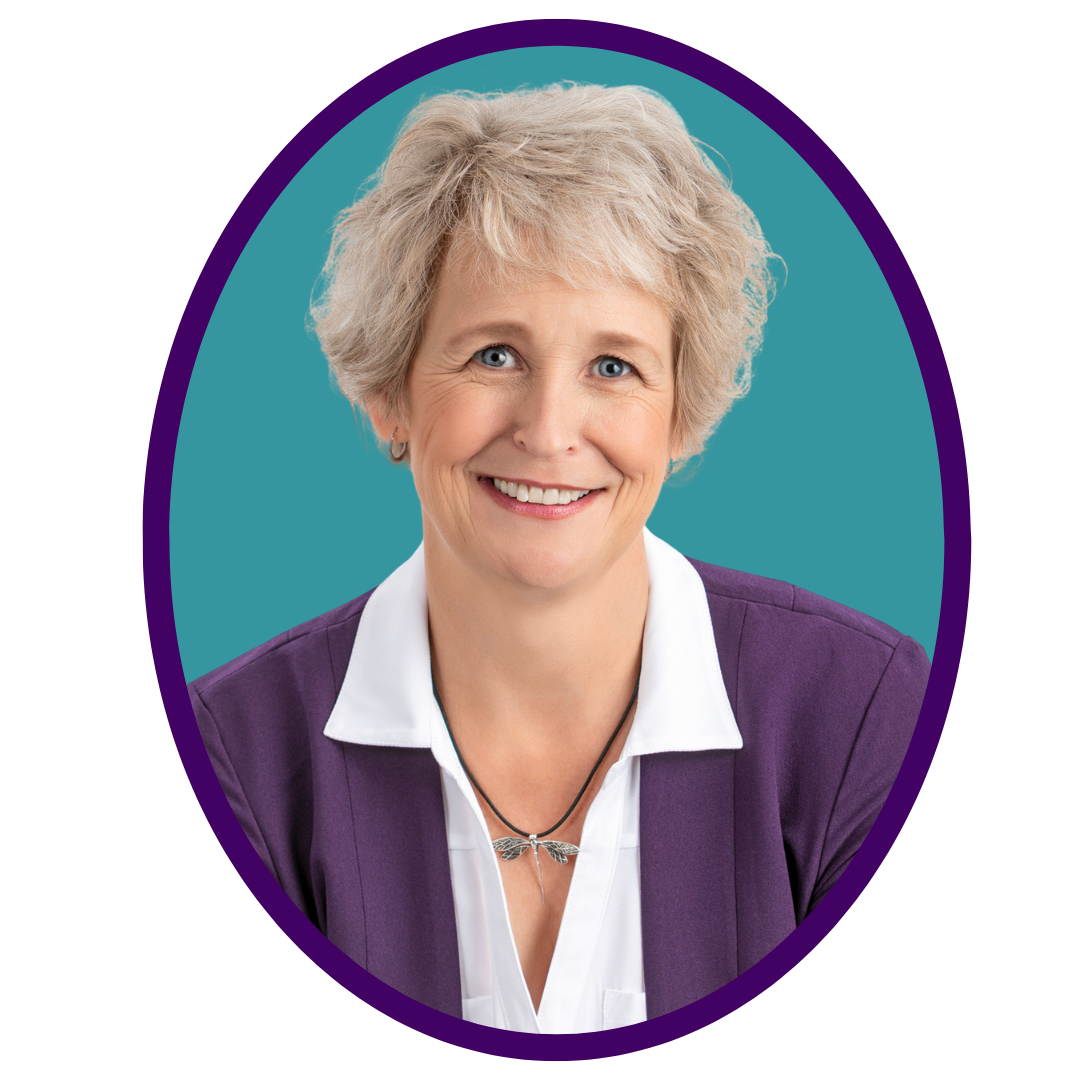|
Jada Pinkett Smith is a beautiful woman. Through the poor writing and/or imperfect execution of “the joke”, the Oscar writers and Chris Rock missed a glorious opportunity to lift a Black woman up. I mean, c’mon. It is not everyone who can look that attractive with a brush cut. To suggest that Jada (at age fifty!) could even be considered for the titular role in a remake of the iconic Demi Moore film could have been a huge compliment. But that was not how things went down. Everyone hates Chris. Or Will. Or both. I am not here to take sides. I am most assuredly not here to whitesplain this event. I know my lane. And it is inner child and trauma healing. What I saw happen on Sunday night was a man triggered at the thought of his wife being ridiculed in front of a roomful of their peers and an audience of millions over her medical condition. Now, you can scoff at alopecia as non-life-threatening, but don’t do so until you’ve looked at the cultural trauma that Blacks have endured relative to their hair. I don’t pretend to know the cultural and historical roots associated with African hairstyles – though I have just picked up Hair Story: Untangling the Roots of Black Hair in America by Ayana Byrd and Lori L. Tharps to learn more – but I don’t need to know the minutiae just yet to recognise its impact. Black people’s hair was and continues to be weaponised in much of the United States. When Africans were kidnapped from their homelands and forced into slavery, they had their heads shaved. After the Emancipation, Black women were still compelled by law to cover their hair with a scarf. Even today there exists and institutional bias against Black hair where job offers are taken away from the woman with the dreadlocks, Chastity Jones, and schools penalise kids for having an afro, as in the case of Jenesis Jones. “If you are Black, you are other. If you are other, you are less than.” That’s been the narrative for generations. And it is easy to see how it could be the basis for complex PTSD for an entire community. That brings us back to The Incident. I’m not here to judge Will Smith’s behaviour. I want to look at it from a different perspective. I’d like to begin by saying that any time a person has a reaction that is significantly greater than the stimulus that prompted it should (objectively) warrant, the person has very likely been triggered by past trauma. I was going to qualify that as, “A reasonable person,” but that’s exactly the point. A reasonable person would not have smacked the s#!t out of Chris Rock. Getting triggered elicits a fight or flight response. Physiologically, the body releases a rush of adrenaline. Fats and stored glucose flood the system with extra energy. The heart rate goes up to push these things through the system faster. Breathing speeds up getting more oxygen to the brain, which heightens all of the senses, and to the muscles as the person prepares to either fight or run like hell. Either way, that person’s blood goes rushing to the extremities in preparation. There’s not enough blood getting to the higher functions of the brain, the thought processes that would stop a mama bear from fighting off a cougar threatening her cub, that would stop a man from jumping into a frozen lake to rescue his dog, that would stop a reasonable man from slapping another man across the mouth. Reason played no part in what happened. Does knowing this excuse Will Smith’s actions? Absolutely not. So, where does this leave us? We are in the land of opportunity! That which triggers us shows us where our healing needs to happen. I heard Will Smith’s words, “Love will make you do crazy things,” and I know people all over the socials have jumped on that as the same rationale used by domestic abusers. And they’re right. I hope they and Will Smith and any of us who have ever seen red can and choose to get the necessary healing. If any good is to come from this very public incident, I pray that it furthers the dialogue surrounding generational and cultural trauma, not as a way to blame, but as a way to heal. It is past time to shatter this pattern of CPTSD. If you get triggered, whether it’s to rage, tears, anxiety, or something else, I’m here to help. You’re not alone. Book your free sixty-minute no-pitch session today. AuthorBased out of Calgary, Canada, Christie Morden is a Mental Health Coach specializing in midlife transformation through inner child and trauma healing. Faced with stagnation in her own healing, she believes hypnotherapy was the missing puzzle piece and built her practice around it. She branded her style of coaching Quicknotherapy, a signature blend of traditional client-centered coaching and hypnotherapy techniques which have been found to be both more effective and more efficient than traditional psychotherapies. Christie's clients experience dramatic results in a single session and many issues resolve within three.
0 Comments
"I texted her yesterday morning and still haven't heard from her. She must be angry about something. What did I do? I mean, I had coffee with Tina without inviting her, but she was working; she wouldn't have been able to join us. Maybe we should have scheduled it for a time when she could have, after work or on the weekend maybe..." I'm sure a similar scenario has played out in your own head on more than one occasion. This week. Let's face it, we are meaning-making machines. We like to understand our world, to make sense of it, so our minds fill in the blanks. That's absolutely natural, but there are different types of people in the world. There are those who write out a number of scenarios in their heads and others who pick one and believe it to be gospel. I, uh, struggle with the latter. At the same time I envy them. It must be very comforting to live in a black and white world, where "because I believe it" is reason enough to look no further. And then they keep seeing information that confirms their bias. Because they're on Facebook. But that's a whole nother rant to get into. It's easy to see, then, how beliefs get formed and reinforced. Imagine a young child realising for the first time that she was unplanned. Imagine if she heard the words, "You were an accident." You are an accident. Even when it's followed up with, "Best mistake we ever made," it'll still leave a mark. Every time she vies for her father's attention and doesn't get it, she will feel less than. If she brings home a bad mark, she will see herself as a disappointment. Any relationship that ends will remind her that there's something inherently wrong with her. Imagine how she might compensate for those perceived flaws. Do you think she would be a people pleaser? And her needs wouldn't just come last, right? They wouldn't be acknowledged at all. She might be promiscuous as validation of her value. At least somebody wants her. Let's take it a step further. What if her promiscuity leads to an unwanted child of her own? It's not difficult to see that pattern perpetuating through the generations. It's crazy to think that one event which, when seen through the eyes of an adult, is insignificant can impact a life so greatly. Her parents wouldn't probably even have given it another thought. But to the developing mind of a child, it was everything. It was her identity. It's obvious to us that there was no intent to injure on her parents' part. It's just life. When I suggest that we're all broken, it's because, well, we're all broken. In some way. And our parents/guardians/caretakers are the single most influential unit in our young lives. I remember from a young age my mum getting really upset watching a TV show or hearing a story involving psychotherapy. "Sure, blame the mother!" But yeah, it's that parenting unit that teaches us who and what we are, where and whether we belong, our values and our value. Kids aren't just small adults. They don't have an adult's capacity for critical thinking. And they are ridiculously literal. I mean, seriously, shouldn't they come with at least a modicum of understanding of nuance? Or a manual? I want to take a minute to circle back to those black and white thinkers. Do you notice the similarity? Literal, no nuances, limited critical thinking? And temper tantrums, can't forget about those. See, what happens is part of our personality gets stunted when we suffer an emotional trauma. For all intents and purposes, we stall emotionally in that moment. When faced with a similar trigger, then, we react in the same manner as a child. Strong emotions like rage, embarrassment, and panic show us what those triggers are and where work needs to be done. Rage was my go to, y'know, before I got all woke 'n' stuff. My friends still laugh about it, but it was horrible. Did you know that perfectionists really shouldn't take up golf? I raged against, hated, and berated myself for bad shots. There was one particular incident at Valley Ridge which stands out. I could not get out of a fairway bunker. One attempt. Two. Three. Four... Then a bunch more f-words including flailing against the offending sand. My playing partners were vibrating with laughter and avoiding eye contact. Funny, right? No. It was my depression bumping up against my I'm not good enough. My I suck. My What the hell is wrong with you?! So, when my family laughs about my nephew Devin throwing his first golf club at age five and proclaims, "He's one of us!" I worry that they're right. We are meaning-making machines. We began to heal when we are able to look at the experiences of our past with the eyes of today. We can journey backwards and see our parents' intent and love. We can rewrite our story from the perspective of a grown up. We can forgive or, more likely, understand that there's nothing to forgive. The most important thing we can do is heal ourselves but remember how our traumas manifested, so we can recognise them in our loved ones and help shatter the pattern. What do you want your legacy to be? AuthorBased out of Calgary, Canada, Christie Morden is a Mental Health Coach specializing in midlife transformation. When depression nearly took her life at age 45, she finally decided she was done living with the pain of her past. She believes hypnotherapy was the missing puzzle piece and built her practice around it. She branded her style of coaching Quicknotherapy, a signature blend of traditional client-centered coaching and hypnotherapy techniques which have been found to be both more effective and more efficient than traditional psychotherapies. Christie's clients can experience dramatic results in a single session, and many issues resolve within three. This weekend I was asked who my ideal clients are and I responded easily, "The adult children of a narcissistic parent; to my mind, they are the most damaged." This morning I was catching up on my Facebook. For professional reasons, the Narcissistic and Emotional Abuse page is among my See Firsts, up there with Two Drunk Ladies and Karin Slaughter. Hey, I have eclectic tastes. Anywho, the first article I saw this morning was about the ageing narcissist. The author, a victim of narcissistic parenting herself, suggested that if a narcissist lies alone on their deathbed without a hand to hold, that is Karma, God having the final say, or - her preference - pay back (sic). I say she, the author, needs some serious healing. Imagine being so bitter and angry that you cannot find clemency for a dying person. My heart breaks for all involved. No, not pity - to me, that requires a feeling of superiority that I just can't muster - but a level of compassion that I wish the author could. Was her parent a manipulative, hyper-critical, self-centred monster? I will assume yes. I can sympathise with the author not wanting to be present at her parent's deathbed, but to want them to face death alone, to say that they deserve to face death alone, tells me more about the author than her parent. Isn't she herself being exactly the person she is accusing her parent of being? Critical, passive-aggressive, and monstrous in her own right? The easy argument is that her narcissistic parent conditioned her, programmed her, trained her to be that way. My question to her is, "Is it not possible that your parent, too, was also conditioned, programmed, and trained?" Other than sociopaths - whose characteristics can overlap with those of a person with narcissistic personality disorder, it's true - people, especially our parents, do not set out to deliberately hurt us. They are simply living in reaction to the way they themselves were raised. We were all narcissists when we were kids, like between toddlerhood and our teen years, the early years as we strove to get our needs met - my nephew Devin's, "How 'bout me?" - and couldn't understand the needs of other people, and the latter in our struggle for independence and self-identity. We grow out of it unless we ourselves suffer a trauma that stunts us somewhere in that window of time. Left unhealed, it shows up as temper tantrums, lack of empathy, dogmatic judgmentalism, and a need for ego-stroking into/throughout adulthood. What if we could find compassion for the child they were or for the person they could have become if they hadn't been wounded in some way? This weekend I worked with a man, let's call him David, whose father was abusive towards him, towards his brother, towards his mother. Now David has already done some great healing work. It was necessary for him to move his young family out to Alberta and his father's influence. Over the past quarter century or so, David has forgiven his father - not his behaviour, but the man. That only fully settled in inside of the past month or so, since he began with hypnotherapy, and has brought some peace into his life, but its residual effects are still pretty strong. Mostly those present as anxiety, mistrust of others, and an emptiness inside of himself. On the weekend, David went on a little journey in his mind. He met his father's child-self and intervened on his behalf, protected him from being beaten by his father. David was able to look at his grandfather and tell him, "No! You will never raise your hand to this child!" And David and his father walked out of that house and into a park, where David was able to say to his young father all of the things he wished he could have heard from him when he was alive. He hugged him and told him that he loved him, that he was proud of him, and that he was a good boy. He also vowed to protect him from harm. David watched his father grow up until they were the same age, the approximate age his father was when David last saw him. Dad looked different. There was no anger in his eyes, only love. The hard lines on his face had softened. The two middle-aged men played in the park together, happy, equal. And a small piece of the void inside of David was filled. He got to feel compassion for the boy his father had been and connect with the man he could have become. It was beautiful to be a part of. I'm not going to take you through our entire session, but there's another piece that I am incredibly pleased with. As I mentioned, David struggles to trust people, so I asked him to begin our journey by imagining himself inside of a Manhattan apartment and to visualise a door with seven locks on the inside of it. I invited him to undo the locks. After a few minutes, and in a fearful voice, he asked, "Who's on the other side?" A fair question, right? I reassured him that it was just me, and he relaxed visibly and undid the locks. I mention this because, at the end of our session, I had him go back into the apartment but to find that there were only five locks, but he corrected me. "No, there's only one." And a dinky one at that! This man who has been walling himself off for over fifty years was able to feel safe behind one simple lock. Maybe next session he'll be able to leave the door open. So, if you find yourself angry or bitter enough toward someone that you wish them ill, just remember that that is you coming from a place of pain. Your peace will be found when you uncover those wounded inner parts of you and heal them. Leave the world better Oh, shoot, there is one other part of David's story that I want to share. See, David was given a sign with his family name on it. His relationship with his father was so bad that he even hated the name, didn't even want to attach himself to it, so the sign got relegated to a spot under the couch. The problem is, David has a son and a grandson who share that name, let's say Smith. No, not Smith. That makes no sense. Something a little more unique, easier to plant his flag in... Crouch. Yeah, that'll work. After having done a lot of that relationship repair work with his father, David was no longer embarrassed by the name Crouch. In fact, he began to embrace it. He leaned into the love he has for his son and grandson, and his pride in the name began to swell. More importantly, so did his sense of self-esteem, his love of and pride in himself. Crouch wasn't just his father's name; it is David's. And his son's. And his son's. And those Crouches will never feel ashamed of their name. Not on David's watch. The three of them are hanging the sign this week. What do you want your legacy to be? AuthorChristie Morden is Calgary's premier mental health coach. Her unique and revolutionary Quicknotherapy, a blend of hypnotherapy and coaching techniques, helps her clients achieve results fast and get the healing that they and their families need to break the cycle of generational emotional trauma. I don't have a gratitude practice, per se, but these days I can usually find something to be grateful for. On harder days my best friend and I play a little game we like to call Gratitude. We're creative like that. The rules are simple; you keep your eyes open and peeled for those little joys that present themselves every day. It's so simple to get bogged down in the negative emotions that can accompany an argument with a family member or a work deadline or, y'know, watching the news, so looking for the good can be a necessary part of one's day. I'm not talking about the big stuff - family, having a job and a home - I'm talking about a wave from a driver you let in in front of you, seeing a smiley face in the pattern of the ceramic tile in your bathroom, or experiencing a beautiful cloud formation. Here's a smattering from April, 2015:
That last one was hard to write. One of our (two - we're not crazy people!) cats, Lucy, had just been diagnosed with kidney disease (with which comes much vomit), to which she succumbed six months later at age eighteen. I am grateful to have had her love in my life. She and her sister Marley showed me that it's possible to be both a cat- and a dog-person. I've been thinking about them a lot this week, because Wednesday was their birthday. Marley died a year and a half after Lucy. For nineteen and a half years they graced our lives. Literally from Day One. When I was going to Mount Royal College to study massage therapy, we were oh, so generously invited to live with an amazing woman who was the outdoor foreman on a dairy ranch in Springbank - shout out, Cindy!! <3. In the spring of 1997, Cindy brought home, well, I can only describe her as a living, breathing Nermal (of Garfield fame), the cutest kitten in the world. Beyond cute, Rosie was gorgeous, grey and white with black markings and curious eyes. Cindy brought her home at six weeks. She was knocked up at six months. Her first heat. Famous last words, "There are no toms on the farm." There was one. And he was orange. By the time they were born, we had moved out of Cindy's, but on the morning of October 9, the call came in. "It's time!" I rushed from our Bridgeland apartment and arrived at Cindy's in time to see the boy, Cheetoh, and Lucy (named for the orange patch on her head and her Lucille Ball scream) being born. Marley was already a squirming, sightless blob. I will spare you the details of the next several minutes (there was an ick factor), but Rosie had her kids cleaned up pretty quickly after, uh, fortifying herself with iron. They lived the first six weeks of their lives in a Stetson box - you should have seen the little buggers learning to get in and out of it! - then our little girls came to Bridgeland to live with us. I was smitten. They were as different as night and day. If anyone wants to get into a nature/nurture debate, this is where I will start. Where Marley would come when she was called, Lucy would never even let you know that she was under the coffee table at your feet. Lucy favoured tinsel balls, while Marley played with catnip mousies. Though they both free fed, Marley was underweight and Lucy was plump. We figured it was because she was the runt, starved in utero then wanting forever after to be sated. Maybe not. In spite of always having access to food, she maintained a steady weight. She wasn't obese. It's funny, now I think about it, just how differently the cats were judged. It was like there was something inherently off about Lucy. So many people told us that we should put her on a diet. She didn't understand their words, obviously, but the judgment sure made me want to rummage in the pantry. And that happened more and more as she got older. I'll admit, we did force her onto a diet, not because the vet told us to, but probably for appearances. What the vet did tell us was that she was the sweetest cat - a fact we knew well. (Marley was much less vet-friendly, but that had as much to do with the fact that she mostly went in there to get her anal glands expressed as her temperament, I'm supposing.) My point is, why did we cause Lucy undue stress? She was happy and healthy. She was arthritic at the end, but eighteen is the equivalent to eighty-eight in human years. Why wouldn't she have been? So, we carried her up the stairs when she seemed sore, and we put a cat-house-bucket-scratcher-thingy (?) beside the chest at the foot of the bed to make it easier for her to climb up. Now, you can say, "Sure, but Marley lived longer," to which I respond that I think she was actually the freak between them :D Nineteen and a half is like ninety-four for us, yet she would still tear around the house regularly. But only once. Marley died in April of 2017. It was heartbreaking when it happened, but it was time. What I hadn't counted on was how hollow the house would seem without the cats' presence. I had been saying just that when, in early December, we got a text. A friend's daughter was splitting up with her fiancé and moving home. She had two cats, but Dad was deathly allergic. Did we want them? That text came on a Monday. We met the cats Wednesday. They moved in Friday. And on this Thanksgiving Sunday, I want to express my gratitude for the love they offer us. We catch ourselves sometimes comparing them to, or even just referencing, "Our Girls," which isn't fair, I guess - Koza and Frankie are definitely our girls - but maybe that's how our mindset has to be. Eighteen plus years they were with us; I never want to feel like we replaced them. We didn't. We have tonnes of room in our hearts for all of them. And for that I am grateful, on this and every day. They make my world better. Nope, I didn't have a farce clue where that was headed. That's kinda the way I like it. I don't like turkey dinner. I know that sounds like blasphemy to many of you, but it's true. I spent many a Christmas and Thanksgiving listening to my mother talk about how much she dislikes turkey dinner. The stress of potentially drying out the bird, the timing of the vegetables, everything conspired to create tension in the house. Anything short of perfection is failure. One Thanksgiving the bottom element of my oven burned out, and I produced a turkey that bled out on the platter. Sorry, Uncle John! One Christmas I thought I'd slow roast the bird and managed to render all of its soft tissues into sludge. That one was for my parents and younger brother. Through all of these years, though, I seem to have forgotten how much Thanksgiving really means to me. Not in a crazed, football-infused American way, but in a much sweeter and more thoughtful way. When I was nineteen, in my first year of university, I got two Thanksgiving dinners, or suppers, I guess, as I was in New Brunswick. I was only a year into the university experience and had made some of the best friends imaginable - hell, I married one of them! I was a stranger and they took me in. I was welcomed into their homes like one of the family, so I using this moment to express my gratitude. And to my mother-in-law Carol who is visiting, I would like to also apologise for those moments this week when I have allowed my stress to get the better of me. It's reflexive, and I am trying to do better. I will never forget your kindness all of those years ago. You brought me into your home - two years of Thanksgivings in a row and many more times besides - and even sent me home with leftovers. I thank you and know that your generosity of spirit has left its mark on me. I love you. What do you want your legacy to be? AuthorChristie Morden is Calgary's premier mental health coach. Her unique and revolutionary Quicknotherapy, a blend of hypnotherapy and coaching techniques, helps her clients achieve results fast and get the healing that they and their families need to break the cycle of generational emotional trauma. 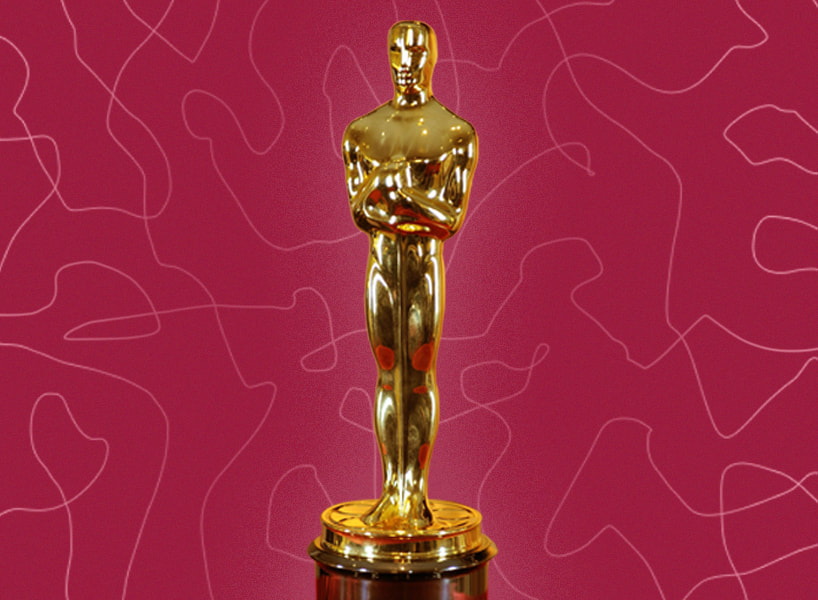 I feel like I've given y'all a glimpse into who I am (some of which is, apparently, an American southerner), but I've never talked about the fact that I'm a total cinephile. Well, maybe that's not exactly the right word. I mean, I enjoy some films which have received critical acclaim - though I will never understand The Shape of Water's appeal - but, mostly, I want a movie that entertains. As far as genres, I like all sorts, though I am mostly drawn to action movies and psychological intrigue. That said, I have also been known to enjoy the occasional horror flick. What I mean by horror is a movie with a story, some suspense, and random hits of adrenaline. I have given up on the gore of the Saw franchise. A couple of decades ago I was at one such horror movie. I cannot for the life of me remember the show, but the experience is one I'll never forget. There must've been a promotion on buckets of popcorn, because we usually get a bag - this is important. There we were, happily enjoying the show when the scary music started and something jumped out on the screen. I, the holder of the popcorn, clenched and squished the bucket into the air. It all happened in slow motion. Noooooooooo... I reached for it, but it was too late; it upended on the nice woman in front of us. Through guffaws I apologised, "I. Am. So. Sorry!" It didn't even get a smile from her. I tried to assure her that it was OK; we don't get butter on our popcorn, but she wouldn't be assuaged. Meh. Accidents happen. Maybe they were on a date. I bet that relationship didn't last. He laughed his arse off. Fast forward to yesterday. Who's seen It: Chapter Two? I don't know if there's a horror movie that I have enjoyed more ever. I mean, I loved An American Werewolf in London and all of the odd numbered from the Nightmare on Elm Street series, but It 2 is in a class by itself. First of all, it's (It is :D) three hours long, far too long for any suspenseful movie to be, but, most importantly, it is a psychological romp. Warning: From here on out I will be adding spoilers. If you are planning on seeing It, stop reading now. The story is a - I don't want to say sequel - it's a continuation of the original story, set twenty-seven years later. The trauma suffered by the fourteen year-old heroes of the original dog them into adulthood. They all suffer from repressed memories. The clown, Pennywise, is the incarnation of their inner voices, the ones that tell them that they're fat, undesirable, and will die alone, or that they are responsible for the death of their brother, or a coward. Who doesn't have a Pennywise living in their head? As a hypnotherapist, what struck me most about the movie was the way the characters were able to change, if not the past, then the emotions that they had about the past. Each character bounced back and forth between their fourteen year-old selves and their forty-one year-old counterparts. They were able to rewrite or, at least, understand a new perspective of their memories. And the final battle? Brilliant. They made Pennywise smaller in their minds. Initially, they thought they would have to make him shrink himself physically, but, no. "There's more than one way to make something small," so they bullied the bully, made him shrink in their own perceptions, and were, ultimately, able to come out victorious. They even changed the past! The headline from a newspaper article which had been written about one of the guys' parents' death changed from (and I'm paraphrasing because the Google let me down) "Crackheads burn in house fire" to "Local couple dies in electrical fire." It is absolutely brilliant! Pennywise preys on each character's insecurity. We hear what their experiences were twenty-seven years earlier and how they were impacted through those years. Imagine being the child of one of the only black families in Smalltown Maine. Or being gay. Or abused by your father. Or being the fat kid. Or the brother of a child who died. Or overprotected by your mother. All of those traumas follow the characters and, finally, when they're ready, the adults take back their lives. They destroy the memories and the emotions that are attached to them and free themselves. That, my friends, is the power of the subconscious mind. I must own this movie. Leave the world better I had a massage client last week who signs her invoices with her middle initial, B. I asked her what the B stood for and she, rather sheepishly, admitted that it was Bertha. She told me that it was her grandmother's name, so she loves including it in her signature as a reminder of her grandmother. Sweet, right? I heard Pennywise's voice in my head when I listened to Dorothy's story. I was honoured with my Auntie Anne's name as my middle name, and, despite the fact that I include the A as part of my signature, I never think of her. Never. Or I didn't. Until now. My Auntie Anne died by suicide when I was young. Honestly, I don't remember her. Sorry, Dad. I would like to, but all I know of her is that one picture of her from when I was about four. All we ever do is cover the lower half of her face up and say how much she looks like my younger brother, Pete. I could have/should have had a piece of her twenty-seven years ago - huh. Isn't that an interesting coincidence? - when I was travelling through Europe. I was living in a VW Transporter which got broken into. All of my Christmas gifts - which my parents had entrusted to my girlfriend, Leesa - were stolen, including a recording of Auntie Anne telling the story of the Littlest Angel. Just like her, it was gone forever. It was all I had left of her. That and Pete's eyes. What do you want your legacy to be? AuthorChristie Morden is Calgary's premier mental health coach. Her unique and revolutionary Quicknotherapy, a blend of hypnotherapy and coaching techniques, helps her clients achieve results fast and get the healing that they and their families need to break the cycle of generational emotional trauma. Hold onto your hats, because I am going totally off-book today. Stop setting goals! What kind of coaching is that?! We all know that the greatest tool a coach – life, sport, business, and the rest – is goal setting. Right? Just hit the Google and you will find goal setting strategies, tools, rules, hacks, and scientific guides. Hell, Tony Robbins himself will tell you that, “GOAL SETTING IS THE SECRET TO A COMPELLING FUTURE!!!” (Why does the man have to scream everything?) Who am I to argue with the guru? Yet here I am doing exactly that. And in a well-moderated tone at that. Let’s take a look at how typical goal setting plays out. We’ll play it S.M.A.R.T.: Specific, Measurable, Achievable, Relevant, Time-based.
Sounds positively horrible, doesn’t it? There’s a cyclical nature to goal setting that, well, keeps coming back on itself. Tautological, sure, but the point is, you never escape. The happiness that comes from reaching a goal is short-lived, and the emotional toll taken by not achieving it is devastating. I propose that we stop setting goals and start setting intentions and then live as though we already exist within them. Every decision that we make after that point is with our future self in mind. "What would a healthy me eat?" or "What would the world's most effective legacy coach do?" The key is to decide who your future self is and then commit yourself to him or her. Beyond that, for me, I am a person who honours her commitments. Combine those with my values to serve love and lean into fear, and I will always be moving in the right direction. That's key, though, isn't it? It's about moving in the right direction, toward that vision you have of yourself. If it's all about the journey, then you will be more flexible when you hit a stumbling block. Whereas the failing to achieve a goal can stop you in your tracks and stymie you into inaction, a roadblock is seen as a detour, a challenge to figure out the way forward. You may find that your truth, your direction, isn't as set in stone as you once thought when you were goal setting. As recently as this time last year I believed that I was going to work directly with the dying and their families. Blown by the winds - as we dragonflies are wont to do - I arrived at a new place. I came to realise that my strengths lay in helping people heal their relationships. From that perch it was easy to see that the ramifications of healing relationships earlier in a person's life than at their deathbeds were far-reaching; end-of-life is simply the last best time to do it, while there's still time to pluck their wounded inner children off of the family tree. I'm reminded of the story of the old carpenter, a homebuilder. He went to his employer and announced that he was ready to retire. The boss asked him for one thing, to build one last house before he called it quits. The carpenter agreed but didn't put his heart into the build. He didn't choose the materials he used as fastidiously as usual. He put the house up as quickly as he could, and his workmanship suffered for it. He shrugged and decided it was good enough. It was an unfortunate way to end a dedicated career. When the carpenter finished his work, his employer came to inspect the house. Then he handed the front-door key to the carpenter and said, "This is your house... my gift to you." The carpenter was shocked! What a shame! If he had only known he was building his own house, he would have done it all so differently. So it is with us. We build our lives, a day at a time, often putting less than our best into the building. Then, with a shock, we realize we have to live in the house we have built. If we could do it over, we would do it much differently. But, you can't go back. You are the carpenter and every day you hammer a nail, place a board or erect a wall. Someone once said, “Life is a do-it-yourself project." Your attitude and the choices you make today helps build the house you will live in tomorrow, and it is your children's house of the future. Build wisely. What do you want your legacy to be? This is the part where I usually just post an aside, another something that struck me this week. This is kinda that, just a very quick one. Mostly, I want to thank the City of Calgary for this weekend's Doors Open YYC. While the weather was abominable - pun intended - we managed to take advantage of it. It really was a weekend of outside the box. Did you know that we have a Buddhist monastery in Calgary? Did you even notice as it grew from one to four storeys? It's called Avatamsaka and it's on the corner of Fourth Avenue and Tenth Street, just south of the Tenth Street (Louise?) Bridge. It is incredible! Its fourth floor houses ten thousand hand-crafted Buddha statues of various sizes, each with a sutra sealed within. I can't imagine the patience it must've taken the volunteers to finish them. The monastery is gorgeous, and peaceful, and open for meditation every Wednesday to people of all faiths from 7-9p. Amitabha. My second event wasn't exactly city-sanctioned; it was a birthday party for the one year-old son of my hypnotherapy instructor. My initial reaction was that this wasn't necessarily the optimal venue for me, a middle-aged childless woman, but I chose to go and was rewarded for it. After an awkward few minutes (of being one of the only adults dressed up as a pirate), I leaned into my fear and began chatting with a woman who was with Children's Cottage Society, a local not-for-profit group dedicated to addressing the needs of families through five main programs: Crisis Nursery, Healthy Families, Brenda’s House, Housing, and Community Respite. (In lieu of gifts, my instructor asked that donations be made to this worthy cause.) After a while conversation began to develop with other people standing around the kitchen island. Like we do. There were adults of all ages - new parents, me and my new best friend Amanda, and grandparents alike. The topic turned to public speaking somehow, which was very much in keeping with the week I had had. Wednesday I went to a Women's Talk on Wednesday. For those of you unfamiliar with it, it's similar to a Ted Talk, only begun here in town by Brigitte Lessard-Deyell and, uh, estrogen-driven. It was my first, and I have since bought a membership and begun writing my own Talk. Thursday I went out again(!), this time to a Fabulous@50 event, a talk by Karen McGregor all about speaking on stage. What was interesting was the acknowledgement that public speaking is scarier to most people than death. I guess it makes sense from an anthropological standpoint; back in our tribal days, if you didn't fit in, you would be cast out, forced to fend for yourself. It's amazing how our brains haven't evolved beyond those thoughts. Next stop post party was somewhere called Taiko Canteen. I don't know if it was part of DOYYC, but it was a blast. We played a silly nine holes of mini golf - what they called Lucky Putt, and laughed our way around the "course." It was in what is now being referred to as Calgary's Barley Belt, which I didn't realise until I saw the banner. I had heard about a barbecue place down there which, I was assured, was the best in town. Paddy's. We arrived early, about 5:15, and the place was packed, always a good sign. We were shown to a table and went up to the bar to grab a flight for me ($8) and a four-ounce draught for Shel ($2). We were seated at a communal table and were joined by a nice family, mom, dad and their two teenage sons, one of whom could drink, so I'll assume 18. It was Dad's birthday. It was their first time there as well, so we foundered together. It was great fun. Today - Sunday - we went to check out the new(ish) Central Library. We booked the early tour, 11a before the doors had even opened. It is a gorgeous spot and so multi-purpose. I know I will be taking advantage of its AV studio when it comes time to create my own videos. It's a great spot not only for research material and fiction, but also to learn about Calgary's history and for meeting rooms. (I feel like I'm selling these places, but I'm not; I'm just sold on 'em.) The tour ended around 11:45, but we stayed until 1:00. I cannot wait to bring my mother-in-law there in a couple of weeks! Last stop on this Play Tourist Weekend was Red's in Ramsay. Sorry, Red's, but I was always told, "If you don't have anything nice to say, don't say anything at all." Well, the service was good... Isn't it fun to explore where you live? I have been very fortunate to've been able to travel over the years. I am grateful for the experience. It will allow me to, well, you know... Leave the world better. AuthorChristie Morden is Calgary's premier emotional legacy coach. Her unique and revolutionary Quicknotherapy, a blend of hypnotherapy and coaching techniques, helps her clients achieve results fast and get the healing that they and their families need to break the cycle of generational emotional trauma. Hard to believe Buddhists are so peaceful, then, right? (Please forgive me the delay in posting. A crazy weekend followed by a September bug of some sort caused me to lose time.) I went up into the mountains last weekend, a lovely cabin outside of Radium, not, y'know, climbing a peak looking for a guru. I took some time to start a new book, Buddhism: A Beginner's Guide Book for True Self-Discovery and Living a Balanced and Peaceful Life, by Sam Siv. The title is nearly as long as the book, which tells the story of Siddhartha Gautama, the boy, the man who would become a buddha. And The Buddha. The word buddha quite simply refers to a person who has attained bodhi, by which we mean wisdom, an ideal state of intellectual and ethical perfection which can be achieved by man through purely human means. Buddha literally means enlightened one in Sanskrit. In theory, then, any person can become a buddha, but it ain't easy. Having attained a certain level of enlightenment, a bodhisattva is a Buddhist who is on their way to becoming a Buddha. Siddhartha is not a deity. Despite teaching for forty-five years, he scarcely considered himself a teacher, because the truths he espoused were so obvious and universal. I’m not going to go into the Three Universal Truths to any great extent. They’re universal and you will probably just nod your head knowingly as you read them. 1. Nothing is lost in the universe. 2. Everything changes. 3. The law of cause and effect. a. The Buddha said, "The kind of seed sown will produce that kind of fruit. Those who do good will reap good results. Those who do evil will reap evil results. If you carefully plant a good seed, you will joyfully gather good fruit." Pretty simple, right? But Buddhism is just like watching a webinar. First, they entice you with something that really speaks to you. They’ve got you hooked in an hour. Next, they offer you something that sounds really good to you, “The Four Noble Truths.” Damn, I really want those! How much? You buy into those easily, and… In for a penny, in for a pound. “But, wait! There’s more!” Before you know it, they’ve sold you on The Eightfold Path. The commitment is pretty high – a lifetime’s worth – but the ROI is the ability to live in peace for the rest of eternity! Oh, that’s right. It’s not just until the end of this lifetime. Buddhists believe in reincarnation. You will keep being reincarnated (Samsara) until you escape the three poisons of Ignorance, Attachment, and Aversion. Order now! Naturally, you will receive follow-up emails trying to sell you on The Eight Worldly Concerns, Kleshas, Karma, Tanha, and The Wheel of Life. There will always be more to learn. About yourself and about others. With each training you take on, you will be robbed of your petty grievances, anger, and attachment to stuff… Nope! Not this time. That wasn’t me getting distracted away from the task at hand, just, uhh, giving a bit of background is all. *whistles innocently* That said, let’s just reign it in from that area of non-distraction and get back to the point: Dukkha, from the Sanskrit, translates out as, ”Suffering, pain, unsatisfactoriness, stress.” Many interpret it to mean, Life is suffering. Gautama Buddha would not be pleased to hear his teachings mangled like that. It’s not life as suffering; it’s life has suffering. Huge difference. The great thinker Xander Harris (in Season 5, Episode 14 of Buffy the Vampire Slayer) says it succinctly. “I’m alive. I can tell because of the pain.” Question: Has any dramatic change ever happened in your life without accompanying pain? Negative change, sure, that’s easy. But think about positive changes that have happened in your life. Pain is growth, at least a lesson of some sort. Think of the lowly caterpillar that has to completely dissolve to be reborn as a butterfly. What about a lobster? It is only the stresses of its life that crack its shell off, allowing the lobster to grow into the one-and-a-quarter to one-and-a-half pounder that many of us know and love. Rabbi Dr. Abraham Twerski explains it best. Suffering is absolutely necessary for growth! Now, if you’re happy and comfortable staying where you are, great! But if you’re like many of us, looking to be the best, most satisfied version of yourself – so you can make a valuable contribution to making the world its best and most satisfied version of itself – you need to embrace a little discomfort. One of the values that is guiding my life is, “Lean into pain.” Sounds horrible, right? Avoiding pain sounds much more palatable. Funny, I was talking to a client last week about my mother’s second knee replacement. My client, Dorothy, who’d had one done couldn’t comprehend Mum’s decision to put herself through that a second time. I explained to her that my mother had been bowlegged all of her life. While having her knee done was initially painful, she recovered beautifully. Any residual pain was bearable in comparison to what she had been living with. The problem she encountered was one of physics. See, her new knee wasn’t bowed. The surgery had straightened it up beautifully. She’s likely one of the only seniors around who has actually gotten taller. On one side, anyway. The other side of her body was in deep trouble. Mum’s other knee was no great shakes and her orthopod knew that it would need replacing eventually, but Mum called him out, insisting that if he didn’t also want to replace her hip, he’d better get to the knee sooner rather than later. He did it sooner. Western society continues to make our lives easier, doesn’t it? You have a headache? Take a Tylenol. Interested in the works of Wayne Dyer? Get the audiobook. Want to touch base with a friend? Send a text. Looking for an overview of quantum mechanics? Google! So simple, but so superficial. As a massage therapist, it was my job to get to the cause of your headache. Audiobooks make it very difficult to precisely capture a poignant statement, particularly while driving. Our reliance on audiobooks also explains how our collective ability to spell has tanked so badly in a generation. Finally, no one can fully wrap their heads around quantum mechanics. Google gives you just enough information to look foolish trying to explain it to others. And texting? Texting isn’t connection. Now, if you’ll excuse me, I am off to meet a friend for coffee. That was lovely. My friend and I have known each other for about ten years, since she was a young woman of seventy-nine. We hit it off immediately, both of us being a little twisted. Now, I’m not saying that engaging at a profound level is impossible over text – shout out, Orochi! – but it takes a level of commitment that can be overwhelming. In a one-hour coffee with my friend, I learned that her parents were alcoholics, her father a violent one, and that she herself is forty-eight years sober. There’s something about being able to look into each other’s eyes with love and compassion that engenders trust. We knew that our words were safe with each other. Oh, and I got a huge hug. I don’t care how many emojis you use, that can never really translate into text. Remember, we need four hugs a day just to survive. Can we say that making our individual lives easier has had a positive effect on our world? From an environmental standpoint, I’ve gotta say no. From horseless carriages to central heating to plastic everything, we are destroying our planet. We had one job! Worst Custodians Ever. Meanwhile, we sit back, lazy and complacent, watching our mental health plummet. We work from home, drive the car to the gym where we workout (head down, music up), then go to the drive-through bank, the self-serve gas bar, and finally to the grocery store where we self-checkout. An entire day gone and you didn’t have to speak to a soul. Soul. Connection. Human to human, soul to soul. Or we can take to our screens, watch A Handmaid’s Tale, without recognising the irony, all while doing battle with strangers on Facebook. By 2050 the world population is predicted to hit 9.7B. That’s on a planet that, by some accounts, can only support 10B. Thirty-one years and we’re gonna pretty much be full, folks. "If everyone agreed to become vegetarian, leaving little or nothing for livestock, the present 1.4 billion hectares of arable land (3.5 billion acres) would support about 10 billion people," cites Edward O. Wilson in that article. "If everyone agreed to become vegetarian, leaving little or nothing for livestock, the present 1.4 billion hectares of arable land (3.5 billion acres) would support about 10 billion people." Sorry, but that bore repeating. I would also argue that our medical science has far outpaced our capacity to feed and water ourselves. It’s not a help that Canada wastes 35.5 million tonnes (78 trillion pounds!) of food annually. Roughly two-thirds of that is lost at the production level and one-third at the level of the consumer. That amounts to $49B worth of food, enough to feed every Canadian for five months. Maybe a more efficient system will help. Or maybe Thanos had it right. So, struggle. Learn. Grow. If we rest in our comfort for too much longer, we’ll continue to pay the price to the tech giants who just want to make our lives easier. Leave the world better. Huh. I’m not entirely sure how I went from superficial foray into Buddhism to environmental rant in fifteen hundred words, but there it is. Ultimately, I guess my point was that there’s no such thing as a life without suffering, but if we lean into it, we can learn a lot and grow not only for ourselves, but for our loved ones. One summer when I was a teenager, maybe thirteen, my family rented a house on Lake Memphremagog in Quebec’s Eastern Townships. The house was a new build and the pathway down to the lake hadn’t yet been cleared. My two brothers and I went down for a swim one morning and I innocuously scratched the top of my left foot on an exposed root. Didn’t even hurt. I washed it off in the lake and proceeded to take a swim. After a while we called it, having grown weary of ducking under to avoid some very aggressive horseflies. They’re part of a dragonfly’s diet, you know. Hmm, I wonder if that’s when my affinity for dragonflies began… But I digress. SURPRISE!! :D Three days later, I had spiked a fever and my whole lower leg was hot and swollen. Things were not looking good for our hero… My parents took me to Magog General Hospital – the same hospital my mother’s mother had died in about a year and a half earlier – and got me tended to. The on-call physician took a needle thiiiiiiiiiiiis big and jammed it into the infection. Owie. My mother sat on the bed trying to block my view of what the nice man was doing, but, well, I’m an idiot that way and craned my head to see. It was pretty gross, not gonna lie. He scooped out green goopy grossness. Yeah, I have that exact same look on my face as I’m typing this, and I lived it! Once he was done with the digging, the doc stuffed cotton in the hole he’d excavated and wrapped several layers of bandage around the top and ball of my foot. It wasn’t until later that I learned that if we’d waited another day, I would have lost my leg up to the hip. So, don’t be afraid to dig deep, people. The cost of waiting could be much more than you want to spend. I don’t know what my life would be like now if I’d lost my leg, don’t know who I’d be. I don’t have a guardian angel named Clarence to show me, but, if I had to guess, I’d say that I wouldn’t still be alive. The mark that I would have left on this world – on my family, friends, clients, strangers – wouldn’t be the same. If a single pebble falls from the bank, the course of the river is changed forever. I know next to nothing about quantum mechanics, but I believe in the ripples we create, in the effects of a butterfly flapping her wings, and I know that I’m a positive force in this universe for the simple reason that I choose to be. What do you want your legacy to be? Monday afternoon I went to a gathering, a private event to which I was asked to bring a rattle. A rattle. That best part about it, as Sarah, the guest of honour, pointed out, is that none of us even questioned the request. My rattle (pictured above) is on loan to me from Mary, a massage client, a woman I have known for almost seven years, a woman who has had me into her home for coffee and whose bird I have met. I casually mentioned to her that I needed one – and why – and she didn’t hesitate. I hope I have the story right… After the war, Mary’s husband was stationed in Jamaica, where he picked up a souvenir for her. He sailed with it all the way from the Caribbean to Victoria, B.C. From there he had to take the train to Saskatchewan. I cannot tell you how honoured I was to be lent such a generous gift. That said, I’m terrified by the burden of it and cannot wait to get it back into her hands today! :D The event in question was a very well-attended healing ritual. I believe we were fifty open-minded ritual goers. See, Sarah was diagnosed with breast cancer in July. I won’t go into detail – it’s her story to share (which she has been gracious enough to be doing) – but would like to tell you about how this pertains to my personal journey. I have known Sarah for about six years, I think. Though the rattle-ask might have given you a clue, she’s a ritual practitioner. The first workshop I took from her was So, You Wanna Be a Death Midwife? (I might be paraphrasing.) Something which has stuck with me all these years is her image of ‘shamanic chili peppers’. It’s like when you go to a Thai restaurant and they let you know how hot you can expect a dish to be by how many cartoon chili peppers are beside it on the menu. Aside: I was in Thailand maybe seven years ago and I would order my dishes Farang, or ‘foreigner’. In other words, “Please don’t hurt me!!” Let me just say that within that weekend workshop, I was also feeling like a bit of a Farang. The average number of shamanic chili peppers in that room was probably pushing nine, with Sarah herself leading the charge at around a hundred and seventeen. Me? I fancied myself a two. Maybe. I was raised without any sort of spiritual leaning whatsoever. All this talk of chakras and anointing with essential oils, and, y’know, the human soul had me wondering what better things I could’ve been doing with my time. Gynaecological exam? Root canal? Shaving my head with a cheese grater while chewing on aluminum foil? But I stuck it out, obviously, and by weekend’s end I had at least doubled my number. Today I’d give myself about a 7.5. I have even started a collection of healing crystals which get cleansed more than most everything else in my house, other than massage sheets. Here’s my point. Probably. As you know I seldom know where I’m going until I get there. My point is that science is just beginning to bear out what spiritual pilgrims have known all along: Everything is energy. That chair you’re sitting on? It is not solid. Particles moving at such speed as to appear solid. If a butterfly flaps its wings in Mexico, it will effect a hurricane in China. Does it do it alone? No, of course not, but it is one of an infinite number of factors that have to happen in order for that hurricane to develop. We are all connected. Further, every molecule of air you breathe has been breathed by everyone else on the planet. I mean everyone who has ever lived. Take a deep breath. At least a molecule of that breath was breathed by Jesus. And by Leonardo da Vinci. And by the Buddha. And by a Kardashian, if that’s your thing. We are all connected. Now maybe you’re one of those people who won’t believe it until you see the math. To you I say, “You’ll never understand the math!” :D Leave that to people much more learnèd in the field than we. Beware anyone who tells you that they understand quantum mechanics. Even if they correct you and tell you that it’s actually quantum physics. Today the terms are interchangeable and equally correct!! We are all connected energetically to absolutely everything else in this universe. Period. That’s what it comes down to for me. I think of the universe as an organism. You and I are single cells in that organism, and we impact it every moment of every day. Like all cells, one day we will shed our mortal bodies which will slough off to make room for a fresh new one, but the law of thermodynamics reminds us that energy cannot be created of destroyed, so we remain part of the greater whole forever and always. In sum, the energy you put out matters. It touches the entire world. So, my question to you is, “How do your anger, your judgment, your irritation, your bitterness, your vengeance, your shame, your discouragement, your apathy, your despair, or your outrage serve the greater whole?” What if you choose to show up with patience, forgiveness, gratitude, kindness, and love instead? Imagine how that would impact your family, your friends, your barista, your fish monger, or the nice lady at the call centre. Check your attitude, change their day, heal the universe. There’s the math. Leave the world better. Oh, how I wanted to continue to keep things light this week with more shout outs to classic 70’s cinema, but Jason Kenney has thwarted my good intentions. Though those of you who have been reading it can likely see its leanings, this blog isn’t intended as a right/left, conservative/liberal battleground; I am shining the same light I always choose: Legacy. By eliminating Alberta Health Care premiums in 2009, Ed Stelmach took $1B annually out of Alberta’s coffers. One Billion Dollars. Maybe you didn’t like having to pay your premiums – who did? – but I feel it’s necessary to remind you that all seniors and lower income households had their premiums subsidised up to one hundred percent. If you paid your full share, it’s because you were making good money. It was still a heck of a lot cheaper than paying a provincial sales tax on all of those big-ticket items you could afford, wasn’t it? Imagine how we could have fared in this economic downturn with those extra dollars. We’d be $400M ahead of this UCP panel’s numbers, for starters! “The panel’s report recommends matching spending with Ontario, British Columbia, and Quebec, which it estimates would drop total annual per capita spending by $10.4 billion, eradicating the province’s deficit by the 2022-23 fiscal year. It focuses on several areas of spending, chiefly health care and advanced education, as well as primary and secondary school education, public sector compensation, and capital spending.” From The Star, September 3, 2019.
So, what does this all mean? What I’m reading is that this Alberta government wants to keep working class people in their place. The panel’s recommendations scream privilege. Maybe you don’t care. Maybe it doesn’t bother you that people who can’t afford a car are having transit routes slashed. Or that lower-income families won’t be able to give their kids a post-secondary education, shit, even a decent secondary education. You can afford private schools, private cars, hell, even private healthcare once that behemoth resurfaces. A well-educated, healthy populace is the only way forward. Make better choices, Alberta. What do we want our legacy to be?
|
Christie MordenMental Health Coach Archives
March 2022
|
